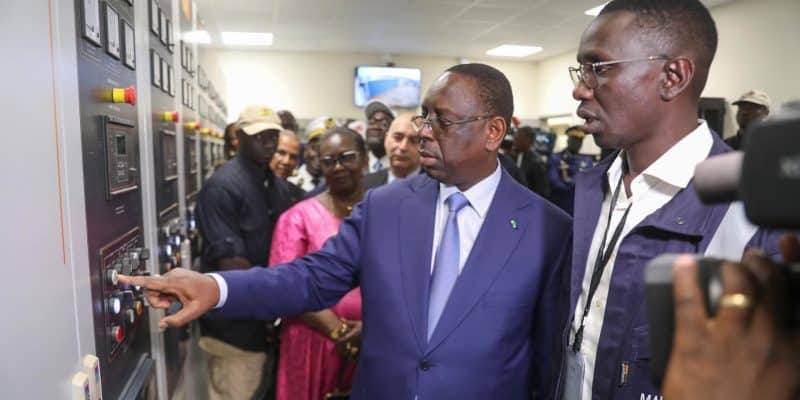
The 120 MW Malicounda power plant, built under a public-private partnership (PPP), was recently inaugurated. Its construction is part of the Senegalese authorities' desire to adopt natural gas as a transitional energy source.
A few days ago, the President of Senegal, Macky Sall, inaugurated a new 120 MW power plant in Malicunda, 85 km from the capital Dakar. This is a thermal power plant built under a public-private partnership (PPP). The plant commissioned in Malicounda is a combined cycle power plant.
This type of power plant operates with two turbines, one of which is a combustion turbine and the other a steam turbine connected to an alternator. With the same amount of fuel, these two turbines can produce a larger amount of electricity. The developers of the project, namely the investment company Africa50, the energy company Melec PowerGen and the Senegalese National Electricity Company (SENELEC), chose fuel oil as the initial fuel.
Conversion to natural gas
However, the Malicounda power plant will be converted to natural gas when Senegal begins to exploit its local deposits. These include the Great Ahmeyim Turtle (GTA) field, which is expected to come on stream during 2023. These gas blocks extend across the maritime border of Senegal and Mauritania.
The reserves are estimated at 1.4 trillion m³ of gas, making the GTA project one of the largest under development in Africa. The two countries have agreed to share the revenues, estimated at $80-90 billion over 20 years. The Malicounda combined cycle power plant is covered by a 20-year power purchase agreement (PPA) under which the energy produced is fed into the Senelec grid.
Senegal bets on natural gas
According to Africa50, the new combined cycle plant produces more electricity more efficiently (up to 55%) with lower emissions than older open cycle plants, which dissipate 67% of energy as waste. “Emissions are expected to be below International Finance Corporation (IFC) recommendations,” reassures the financing platform founded by the African Development Bank (AfDB) and African states. In addition to this environmental benefit, the plant should help meet base load requirements, facilitating the injection of renewable and often intermittent energy into the grid.
And it’s a good thing, since the locality of Malicounda is already home to a 22 MWp solar photovoltaic plant commissioned in 2016 by the Italian group Solaria. The choice of gas confirms the Senegalese government’s desire to adopt natural gas as a transitional energy. President Macky Sall has not hesitated to put this issue on the table before major international bodies where he reaffirms “the desire of African countries to rely on their natural resources to accelerate their economic development”. In Senegal, the issue of natural gas is still being debated within civil society.